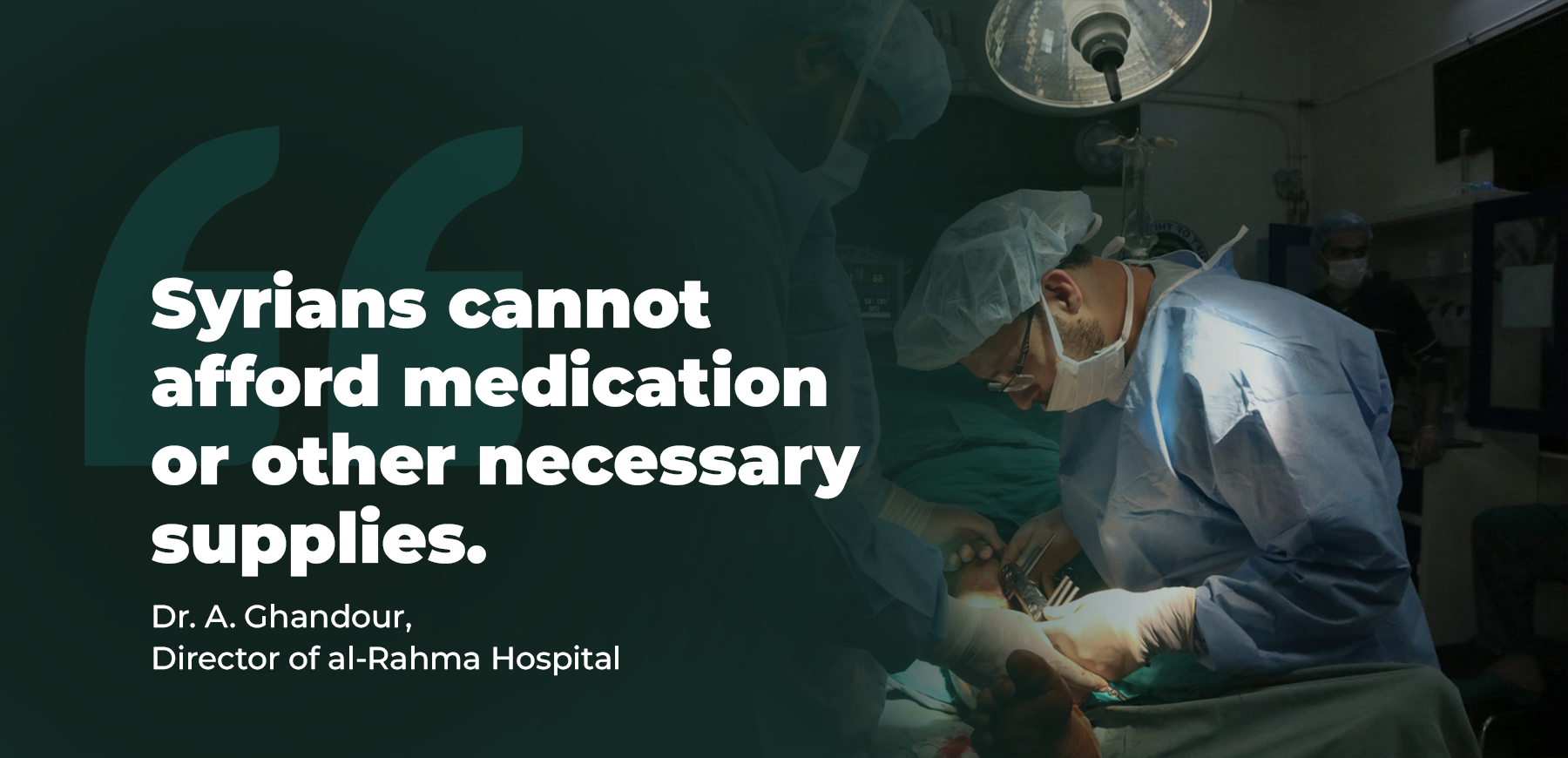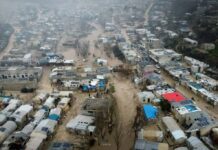
Northern Syria is facing a looming health crisis exacerbated by severe funding shortages. The region, already ravaged by years of conflict and devastating earthquakes is seeing its healthcare infrastructure crumble as international support wanes. The situation has reached a critical point where immediate action is necessary to prevent further loss of life and suffering. L24 explores the gravity of the situation through the perspectives of key healthcare professionals in the liberated north.
Amplification of the Humanitarian Crisis by Funding Shortages
The ongoing conflict in northern Syria has devastated much of the region’s infrastructure, with hospitals and clinics bearing the brunt of the destruction. Dr. Wajih Qararat, Director of Harem General Hospital, highlights a pressing social issue: “Most of the residents in northwest Syria are displaced and unemployed, including a significant number of elderly and disabled individuals due to the war, as well as orphans who are fundamentally unable to secure their daily sustenance and basic needs.” This dire situation is compounded by a significant reduction in international funding, leaving healthcare providers struggling to meet even the most basic needs.
Dr. Ahmed Ghandour, Director of Al-Rahma Hospital in Darkoush, describes the negative impact of funding cuts on patients: “The (Al-Rahma) hospital serves a strategically important area that stretches from the coastal mountains to Jisr al-Shughur, Harem, and Salqin. Most of the residents are internally displaced persons living in camps, and their economic conditions are dire. They cannot afford medication or other necessary supplies.” While demand and need for medical services have increased in recent years, the financial support required to meet these demands has dwindled. This incongruity has resulted in critical shortages of medical supplies, equipment, and staff, further amplifying the humanitarian crisis.

A recent World Health Organization (WHO) report highlights the severity of the crisis, calling for urgent international action to address the dire health conditions in northern Syria. The WHO notes the drastic reduction in healthcare services and the growing number of people in need of medical assistance.
One poignant example is the scarcity of essential medications and surgical supplies. Hospitals like Harem General and Al-Rahma are often forced to turn away patients or delay crucial surgeries due to these shortages. The lack of funding has also led to the suspension of several vital health programs, including vaccination drives and maternal health services, putting the lives of the most vulnerable, women and children, at risk.
Threat to Public Health & Safety
The funding shortfalls pose a significant threat to public health and safety in northern Syria. Dr. Mulham Ghazi, Director of the Directorate of Hospitals at the Ministry of Health, highlights the broader implications: “Support for some hospitals has recently ceased, but the majority of them continue to operate voluntarily on a part-time basis. However, this has increased the pressure on other hospitals, in addition to increasing the difficulty and burden on citizens, especially due to the long distances, particularly in the Ariha and Jabal Al-Zawiya areas, where currently only one hospital, the Ariha Central Hospital, is operational.”
The lack of adequate medical supplies and personnel has left many communities vulnerable to disease outbreaks. For instance, the recent resurgence of polio and measles can be directly linked to the discontinuation of vaccination programs. The impact is particularly severe among vulnerable populations, such as children, pregnant women, and the elderly, who require continuous medical care and support.

Patients’ stories illustrate the devastating human cost of the funding crisis. Dr. Ahmed Ghandour notes that many patients need hospital care but cannot continue their treatment due to financial constraints and the lack of necessary drugs: “This situation will lead to an increase in disease, epidemics, and mortality rates, which will have a severe impact on the community’s health.”
In an active war zone, emergency and trauma care is often at the forefront of public needs which remains under serious threat due to lack of proper support. A recent incident further illustrates this aspect of the crisis. When a bus carrying students and teachers crashed near Darkoush, Al-Rahma Hospital played a crucial role in the emergency response. Despite their efforts, Dr. Ghandour notes that funding and staff shortages severely hampered their ability to provide care: “We have implemented an emergency plan due to our lack of resources, focusing only on emergency surgeries and medical procedures. Currently, we lack medicines and have a shortage of medical supplies. This burden falls heavily on the patients, who already cannot bear these additional expenses.”
Urgent Need for International Support & Solidarity
The international community has played a crucial role in mitigating the healthcare crisis in northern Syria in the past. However, the recent decline in funding has reversed much of this progress. Muhammad Ghazal, Head of the Research and Development Division and an official in the Secondary Care Department at the Idlib Health Directorate, emphasizes the urgent need for renewed support: “Due to the funding cut, some health facilities have closed, and services have been reduced in others. This has led to a severe shortage of medicine and medical supplies and difficulties in providing patient care, especially in some areas such as Harem and Jisr al-Shughur. Additionally, some medical staff have been without salaries, or any form of support, which has also affected their living conditions.”

A System on Life Support
The impending health crisis in northern Syria, driven by severe funding shortfalls, threatens to devastate an already fragile healthcare system. Doctors Qararat, Ghandour, and Ghazi, alongside Ghazal, paint a grim picture of the current situation and the urgent need for international support and solidarity for medical care in the region. “Solutions.” posits Dr. Qararat, “start with the World Health Organization, which needs to convey the deteriorating health reality, already exhausted by the war, to international donors and those concerned with humanitarian affairs, hoping this will make a difference and prompt a response.”
The current situation says Al-Rahma’s Dr. Ghandour, is untenable. A lack of funds for salaries and vital supplies has left the hospital on the brink of collapse, “Although the staff is working voluntarily, the number of patients and visitors has not decreased because other facilities in the area also lost support, leading patients to seek services at our hospital. However, if the support does not resume, we will not be able to continue.”

However, according to Ghazal, there is still hope as those in the liberated north continue to do what they can, in cooperation with international organizations to address the issues, “The Health Directorate is also coordinating with organizations and health facilities to discuss all available solutions to address the support shortage. Such as providing support to medical staff, to encourage them to stay in the facilities. For instance, if support for a hospital or health facility is cut off, the staff will not immediately leave. We are also addressing entities like the WHO and others to reactivate funding based on the new map we are working on.”








